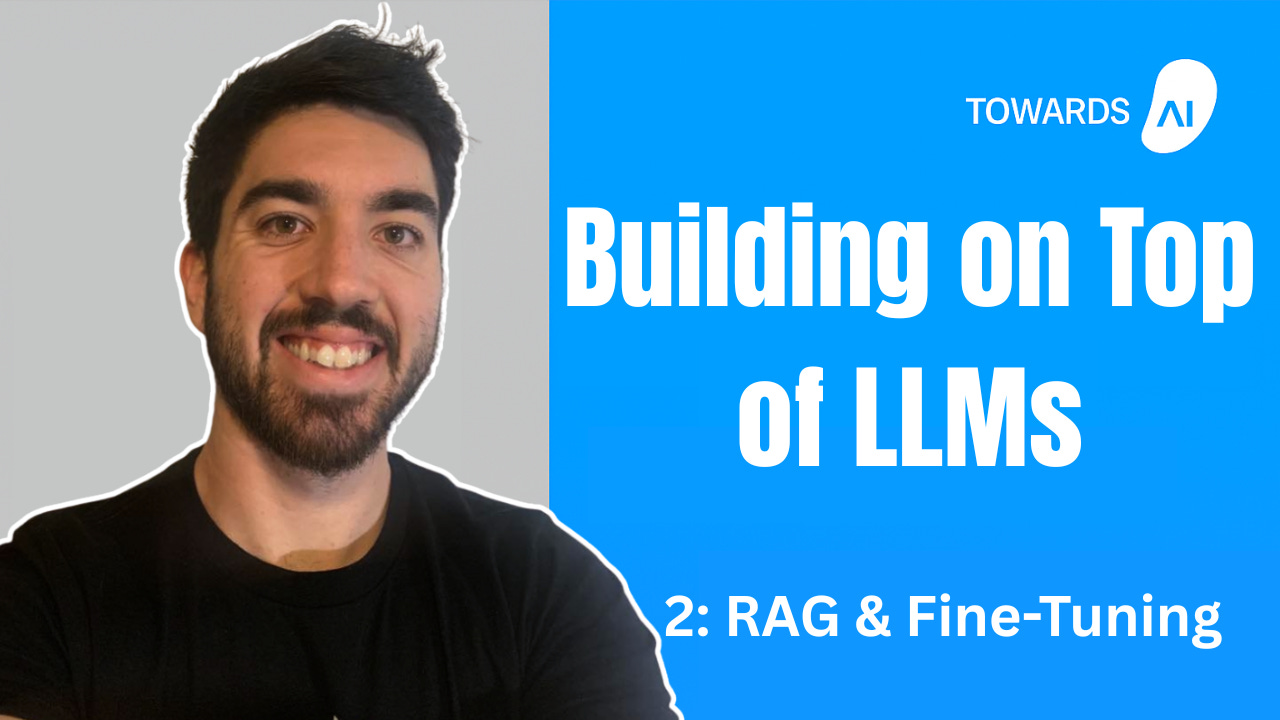
Unlocking the Potential of Large Language Models: Key Insights from Recent Training
In a recent free two-hour live training session, Louis-François Bouchard delved into the intricacies of building applications with Large Language Models (LLMs). This session was part of a broader ten-hour video course that aims to empower developers and companies to effectively harness the capabilities of LLMs.
Overcoming Limitations
Bouchard emphasized the importance of understanding and overcoming the limitations of LLMs. He discussed various techniques, including Retrieval-Augmented Generation (RAG), fine-tuning, and structured outputs, which can significantly enhance the performance of these models.
Key Takeaways
For those unable to attend the session, here are the ten key takeaways focused on building and customizing with LLMs:
- Prioritize Optimization: Before investing time and resources into fine-tuning models, start with prompt optimization and RAG to tackle common challenges like hallucinations and knowledge gaps.
- Prompting Techniques: Utilize “zero-shot” and “few-shot” prompting as initial strategies. Only consider basic RAG techniques if these methods do not yield satisfactory results.
- Advanced RAG: Explore advanced RAG techniques to enhance the relevance of responses. This may include smart data chunking and the integration of vector databases.
- Iterative Approach: Follow an iterative approach where you gradually move from basic techniques to more complex methods based on performance outcomes.
- Structured Outputs: Implement structured outputs to facilitate better organization and comprehension of generated data.
By adopting these strategies, developers can significantly improve the effectiveness of LLMs in real-world applications. Bouchard's insights serve as a valuable resource for professionals seeking to navigate the complexities of AI technology.
Rocket Commentary
Louis-François Bouchard’s recent training session on building applications with Large Language Models (LLMs) underscores a crucial shift in how developers approach AI technology. While the emphasis on overcoming LLM limitations through techniques like Retrieval-Augmented Generation and fine-tuning is commendable, it also highlights a pressing need for a more comprehensive understanding of ethical considerations and accessibility. As organizations strive to leverage LLMs for competitive advantage, it's imperative that the industry prioritizes not just optimization, but also responsible deployment. The potential for LLMs to transform business processes is immense, yet this transformation must be grounded in ethical practices that ensure these technologies benefit all users equitably. As we embrace the capabilities of LLMs, we must remain vigilant about their implications, fostering an environment where innovation is matched by accountability.
Read the Original Article
This summary was created from the original article. Click below to read the full story from the source.
Read Original Article